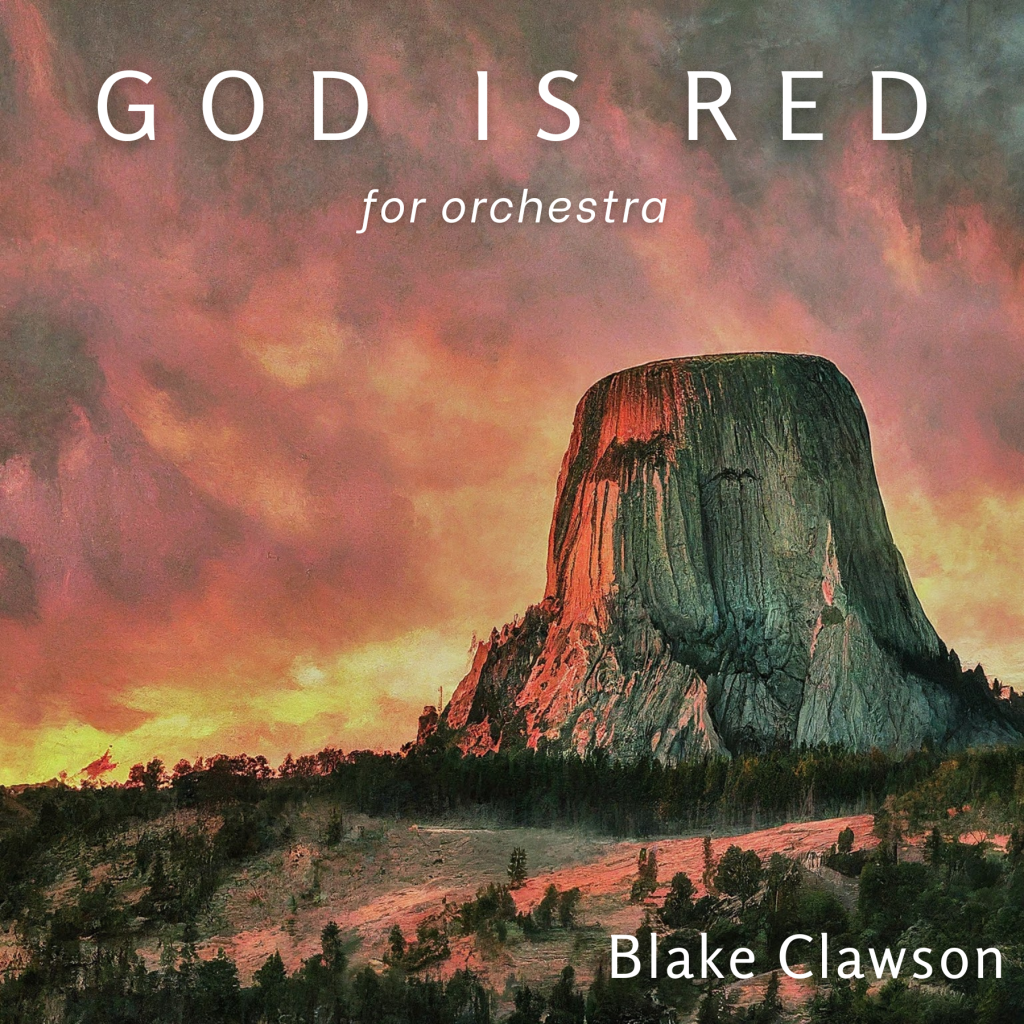God Is Red
A tribute to Vine Deloria Jr. (1933-2005), God Is Red was written as part of the CU Boulder Luminaries project in collaboration with Renee Gilliland and the CU Boulder Philharmonia Orchestra. This piece is titled after the seminal work by Standing Rock Sioux author and Native American activist Vine Deloria Jr., which presents a sophisticated social critique of Western culture. Deloria’s book has been highly influential in Native American activist circles since its publication in 1973 and concludes with a powerful passage:
Who will find peace with the lands? The future of humankind lies waiting for those who will come to understand their lives and take up their responsibilities to all living things. Who will listen to the trees, the animals and birds, the voices of the places of the land? As the long forgotten peoples of the respective continents rise and begin to reclaim their ancient heritage, they will discover the meaning of the lands of their ancestors. That is when the invaders of the North American continent will finally discover that for this land, God is red. (Vine Deloria, Jr., God Is Red)
Deloria’s call for Western societies to look to Native leadership to restore order in our world is both compelling and complex; indeed, I cannot summarize it in this space while maintaining its nuance and cogency. For that purpose, Deloria’s own words above will have to suffice. I encourage anyone interested in learning more to read God Is Red, or any of Deloria’s other work, for that matter. This piece for orchestra is a reflection on the tension Deloria identifies at the root of the problem: Western societies generally have a limited or nearly non-existent attachment to and stewardship of specific places in the way that Native cultures do. That is, Western culture as a whole places no spiritual or cultural significance on the relationship to the inhabited landscape. Deloria argues that this is why the cultural, religious and economic engine of Western society can be so dissociated from the responsibility of caring for the lands; in broader contemporary terms, he is referring to lands management and environmental conservation. The music I’ve written is intended to reflect this tension. The natural world demands preservation for innumerable reasons, yet the Western cultural system is in many senses diametrically opposed to that goal. What do we do? Who will find peace with the lands?
The recording on this page features the CU Boulder Philharmonia Orchestra conducted by Renee Gilliland.
For questions about purchasing and performing this piece, please contact Blake directly using the contact form.
